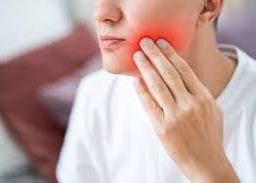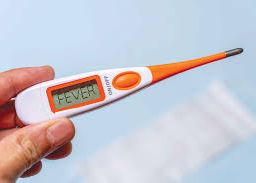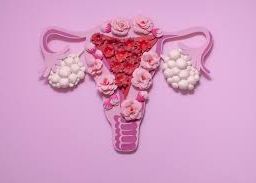
Menopause Myths That Could Be Affecting Your Health
Welcome to our comprehensive guide on menopause, a natural biological process that marks the end of a woman’s reproductive years. In this informative resource, we will debunk common myths surrounding this period and provide accurate facts to help you navigate this significant life transition with confidence and understanding.

Menopause is a natural biological process that marks the end of a woman’s reproductive years. It is often accompanied by a range of physical and emotional changes that can vary from person to person. Unfortunately, this period is surrounded by a number of myths and misconceptions that can lead to confusion and unnecessary anxiety.
1. Menopause happens suddenly.
Fact: It is a gradual process that typically occurs over several years. It begins with perimenopause, which can start in a woman’s 40s or even earlier. During perimenopause, hormone levels fluctuate, leading to irregular periods and symptoms like hot flashes and mood swings. Eventually, a woman reaches menopause, defined as 12 consecutive months without a menstrual period. Understanding that menopause is a gradual transition can help women better manage their symptoms and plan for this life stage.
2: Menopause only affects older women.
Fact: While this phase is commonly associated with women in their 50s, it can actually occur in a wide age range. Some women experience early menopause, which refers to menopause occurring before the age of 45. Factors such as genetics, certain medical conditions, or surgical interventions can contribute to early menopause. On the other hand, late menopause, occurring after the age of 55, is also possible. It’s important to recognize that menopause can happen at different ages and that each woman’s experience may vary.
3: Menopause means the end of bone health.
Fact: While the decline in estrogen levels during menopause can contribute to bone loss, it does not mean that bone health is irreversibly compromised. Women can take proactive steps to maintain and improve bone health through a combination of regular weight-bearing exercises, adequate calcium and vitamin D intake, and lifestyle adjustments such as quitting smoking and moderating alcohol consumption. Regular check-ups and bone density scans can help monitor bone health and guide appropriate interventions if necessary.

4: Hormone therapy is always necessary during menopause.
Fact: Hormone therapy (HT) is one treatment option to manage menopausal symptoms, but it is not necessary or suitable for every woman. HT involves the use of estrogen, sometimes in combination with progestin, to alleviate symptoms like hot flashes and vaginal dryness. However, HT may carry certain risks and side effects, and individual circumstances should be considered before starting any hormonal therapy. Non-hormonal alternatives, as mentioned earlier, can also be effective in managing symptoms for women who prefer not to take hormones or have contraindications.
5: Menopause means the end of sexual activity.
Fact: Menopause does not signify the end of a woman’s sex life. While hormonal changes during this phase can cause vaginal dryness and decreased libido for some women, there are various treatments available to address these issues. Open communication with your partner and healthcare provider can help you maintain a fulfilling and satisfying sexual relationship during and after menopause.
6: Hormone replacement therapy (HRT) is the only solution.
Fact: Hormone replacement therapy (HRT) can be an effective treatment for managing menopausal symptoms, but it is not the only option. Lifestyle changes, such as regular exercise, a healthy diet, stress management techniques, and alternative therapies like acupuncture or herbal remedies, can also provide relief from symptoms. It is important to discuss all available options with your healthcare provider and make an informed decision based on your individual needs and medical history.
7: Menopause causes weight gain.
Fact: While hormonal changes during the menopausal period can affect metabolism and lead to weight redistribution, menopause itself does not directly cause weight gain. Age-related factors, such as decreased muscle mass and a slower metabolism, combined with lifestyle and genetic factors, can contribute to weight changes. Maintaining a balanced diet, engaging in regular physical activity, and practicing portion control can help manage weight during menopause.
8: Menopause increases the risk of heart disease.
Fact: It does not automatically increase the risk of heart disease. However, the decline in estrogen levels during the menopausal period can affect heart health. It is important to adopt a heart-healthy lifestyle by maintaining a nutritious diet, exercising regularly, not smoking, managing stress, and getting regular check-ups to monitor blood pressure, cholesterol, and other cardiovascular risk factors.

9: Menopause leads to memory loss and cognitive decline.
Fact: While some women may experience mild memory lapses or difficulty with concentration during this period, it is not a universal occurrence, nor does it necessarily indicate long-term cognitive decline. Research suggests that factors such as sleep disturbances, stress, and hormonal fluctuations may contribute to these temporary cognitive changes. Engaging in mentally stimulating activities, getting enough restful sleep, and maintaining a healthy lifestyle can help support cognitive function during menopause.
10: Menopause causes depression and mood swings.
Fact: This can be a time of emotional adjustment due to hormonal fluctuations, but it does not automatically cause depression. Women may experience mood swings or emotional changes, but these symptoms are usually temporary and manageable. It is important to seek support from loved ones, engage in self-care activities, and consider therapy or counseling if needed. While hormonal changes can impact mood, it is essential to address any underlying mental health concerns separately.
11: Menopause means the end of fertility.
Fact: While menopause signifies the end of natural fertility, it is still possible to become pregnant during perimenopause. As ovulation becomes irregular and less frequent, it becomes harder to predict fertility. If you do not wish to conceive, it is important to continue using contraception until you have reached menopause (12 consecutive months without a period). Consulting with a healthcare provider about birth control options is advisable during this transitional period.
12: Menopause is a disease or medical condition.
Fact: This is a natural biological process and not a disease or medical condition. It is a normal part of a woman’s life cycle, signaling the end of reproductive years. While it may come with certain challenges and symptoms, viewing menopause as a natural transition can help reduce stigma and promote a more positive outlook on this phase of life.

13: All menopausal symptoms are the same for every woman.
Fact: These symptoms can vary widely among women. While some may experience hot flashes, night sweats, and mood changes, others may have a relatively smooth transition with minimal symptoms. Factors such as genetics, lifestyle, overall health, and individual physiology can influence the severity and type of symptoms experienced. It is important to recognize and address your specific symptoms while seeking appropriate support and treatment options.
14: Men also go through menopause.
Fact: While women experience this as a natural part of aging, men do not go through a comparable process. Men may experience a gradual decline in testosterone levels as they age, known as andropause or late-onset hypogonadism. However, the symptoms and hormonal changes associated with andropause are generally less severe and more gradual compared to menopause in women. It is important to note that the concept of male menopause is not widely recognized or supported by medical professionals.
15: Menopause means the end of vitality and productivity.
Fact: It does not mark the end of a woman’s vitality or productivity. In fact, many women find that they experience a newfound sense of freedom and self-discovery during this phase of life. While menopause may come with physical and emotional changes, it does not diminish a woman’s abilities, creativity, or ambition. With proper self-care, support, and lifestyle adjustments, women can continue to lead fulfilling, active lives and make significant contributions in various areas.

Menopause does not signify the end of vitality, productivity, or overall well-being for women. Each person’s experience with menopause is unique, and it’s important to approach this phase with accurate information, open communication with healthcare professionals, and support from loved ones. Embracing menopause as a natural part of life can empower women to navigate this transition with confidence and live their best lives.
Disclaimer: The information provided in this content is for general informational purposes only. It is not intended as medical or healthcare advice, diagnosis, or treatment. Always seek the advice of a qualified healthcare professional with any questions you may have regarding a medical condition or healthcare decisions.
















